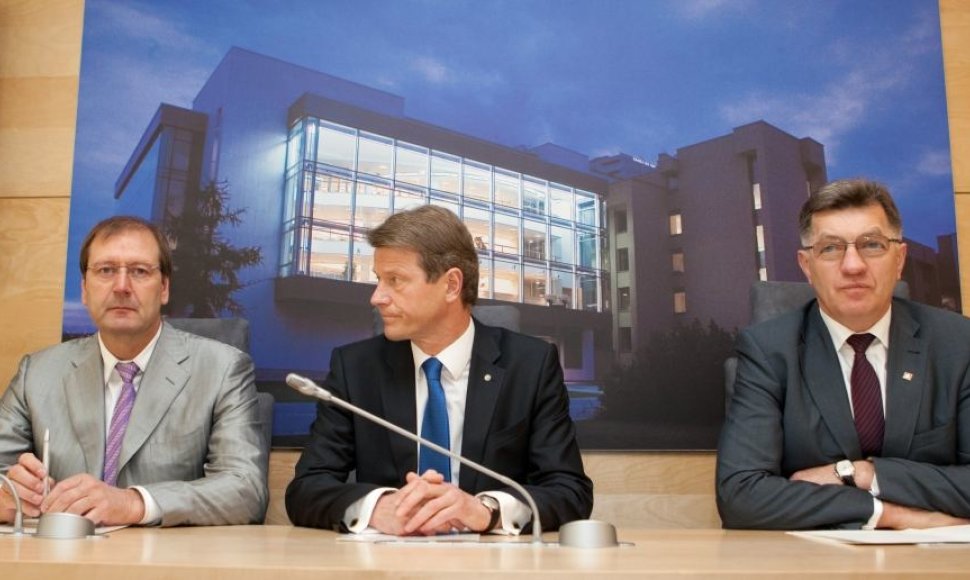They say their parties lack information to have a strong and clear opinion on the nuclear power plant project, therefore, it’s too early to decide whether to urge people to vote in favor or against.
The three parties agreed on a "Wide Coalition" program in 2010, which at the time was introduced as an alternative to the incumbent government's program and said that "it is necessary to start the construction of a new nuclear power plant as soon as possible."
"Our goal is for the public to have complete information about the nuclear power plant project. We are still trying to get information from Latvia and Estonia as to whether they plan to sign an agreement on pre-project issues. We also want to see the funding program, and not only that of the project itself, but a wider one, for example, how much it will cost to build a road. We'll definitely not be engaging in populism. Once we get all the information, then we'll decide. We want the public to know as much as possible about the project," Algirdas Butkevičius, chairman of the Social Democratic Party, told BNS on Monday.
The social democrats said in 2008 that it was important to start constructing a nuclear facility as soon as possible as it would send a clear message to the project's partners, Latvia and Estonia.
Leader of the Labor Party, MEP Viktor Uspaskich, says not only he but also the prime minister and the president lack information about the project, and any answers, he said, will be clear after the party gets acquainted with the N-plant project itself.
"I personally am in favor of nuclear energy, and I've been in favor for a long time. Ever since 2000, when I was chairman of the parliamentary Committee on Economics, we have worked on this issue. The only thing is that it's too early to talk about this particular project as there are questions we don’t have answers to. If that's economically beneficial, and the price is good, and there's an opportunity to join the European networks, then the construction is beneficial, and we would urge people to vote in favor of a project beneficial for Lithuania," Uspaskich told BNS.
Meanwhile leader of the Order and Justice Party, MEP Rolandas Paksas, said available data do not allow the party to back Visaginas nuclear power plant.
"If we talked about this particular project, we would be against as we are against the conditions under which negotiations are being held, and we'll decide what we might change after the elections," Paksas told BNS.
"Our position is simple. We are supporters of a nuclear power plant. We have spoken in favor of Lithuania remaining a nuclear energy state since day one. But we are also of the position that people should have a say on key issues. The power plant, as it stands now, raises a lot of questions including the issues of safety, reactor capacity, and price. We are against jumping into pre-formed proposals, and it’s vital today that people decide on this issue," Paksas said.
Earlier in the day, Lithuania's parliament decided to hold an advisory referendum on the construction of a new nuclear power plant in the country along with the upcoming Seimas elections on 14 October.
Lithuania is currently holding talks with Latvia, Estonia and Japans' Hitachi on the construction of Visaginas nuclear facility by 2020-2022.












